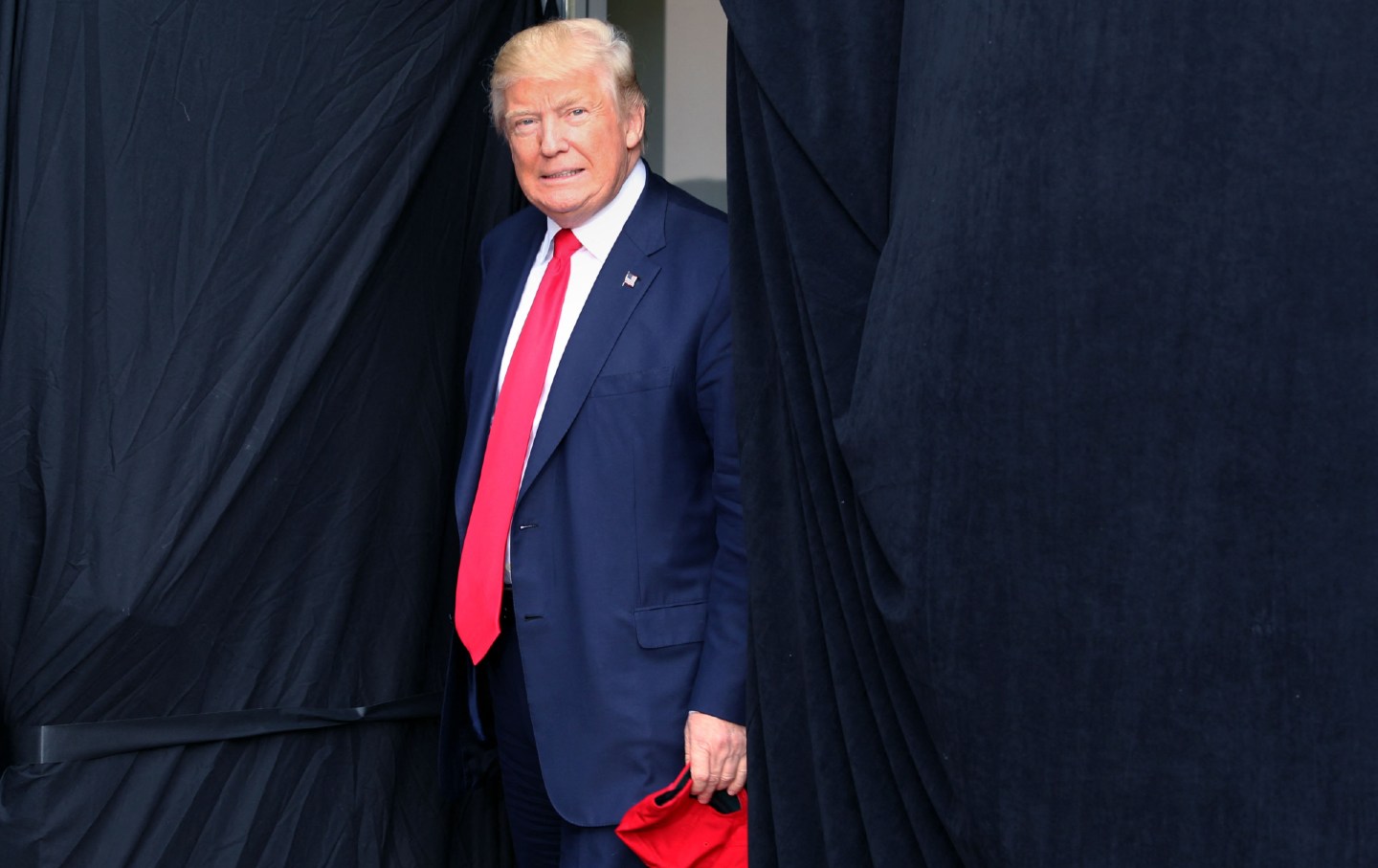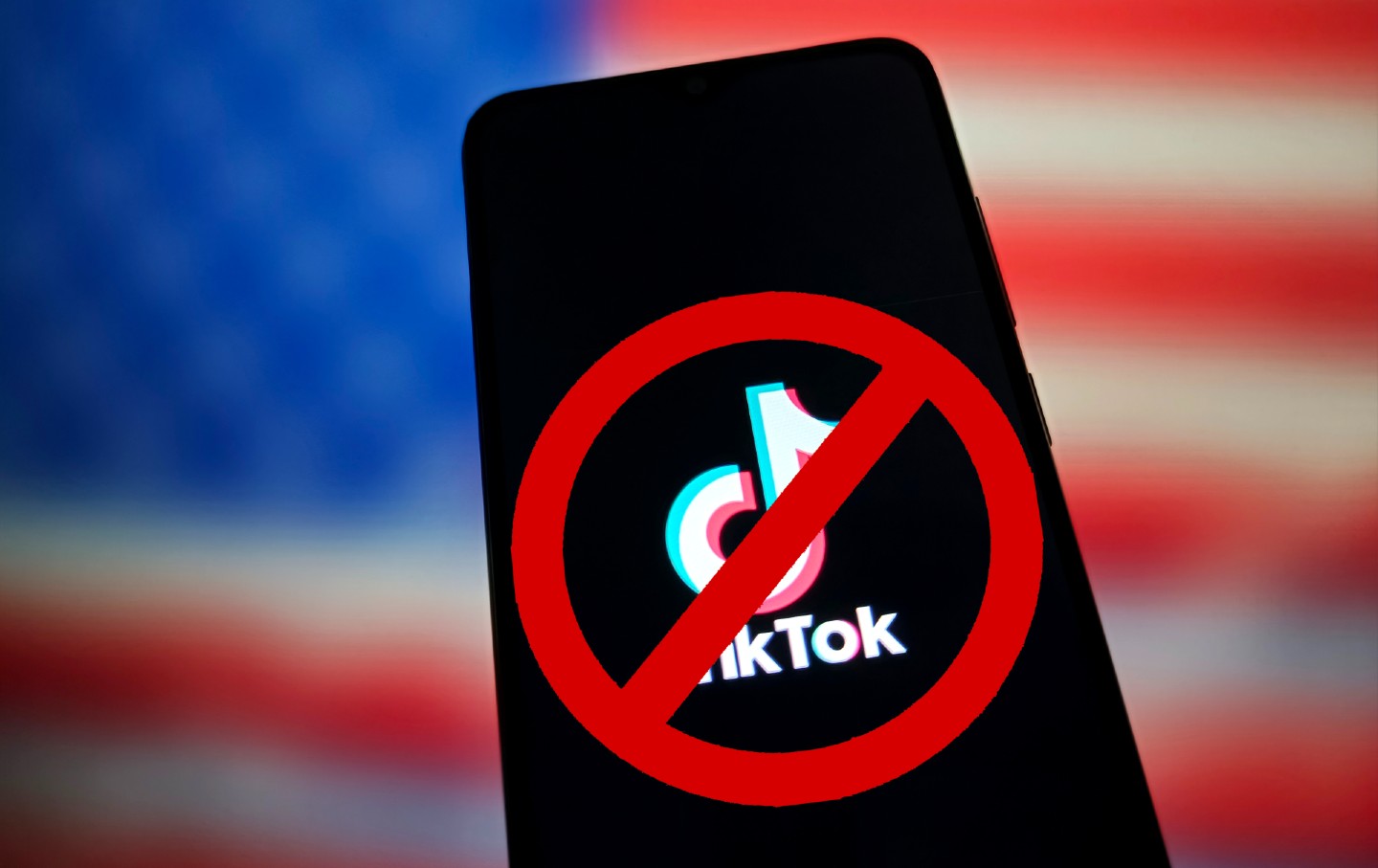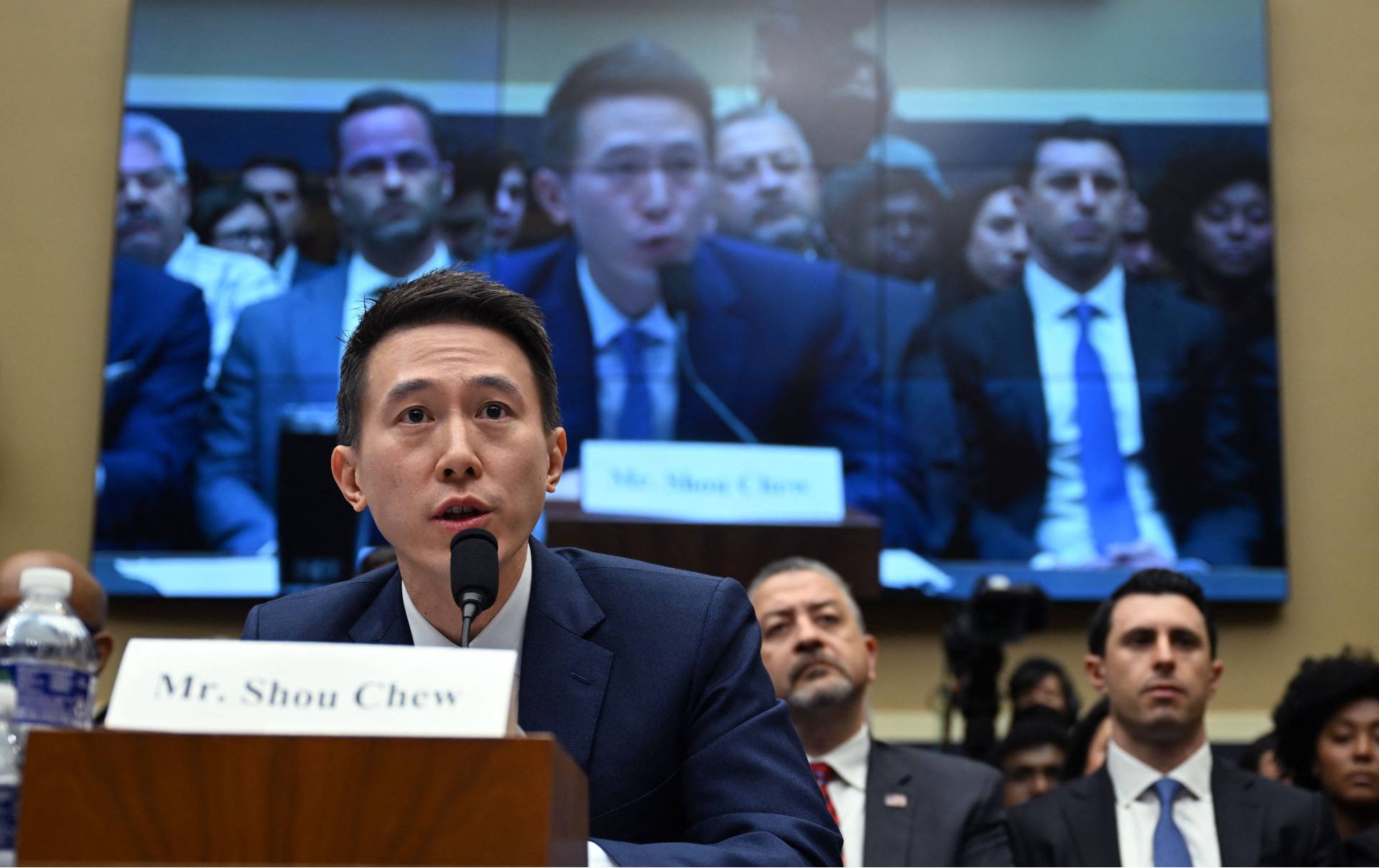Pay Less Attention to That Man in Front of the Curtain
Musk’s machinations and Trump’s daily outrages are meant to be mesmerizing—and paralyzing. But there are plenty of ways to fight back effectively—starting with not panicking.

When Elon Musk, empowered by President Trump, moved to shut down USAID, calling it a “criminal organization,” Catholic bishops in the US started frantically calling on their parishioners to pressure their members of Congress. Half the budget of Catholic Relief Services—founded to serve World War II survivors in Europe—comes from USAID. CRS serves 200 million people and is a key first responder after earthquakes, mudslides, and hurricanes.
Democrats were absolutely right to scream bloody murder about the illegal effort to shutter USAID. It’s a bad thing. But the image of a huddle of impotent Democratic members of Congress, each waiting for their turn at the microphone outside USAID headquarters, was dispiriting, not invigorating. It seemed to underline the view that all they can do is cluster in protest, with no more rights than a teenager, and with no special power as members of Congress.
Here’s what they should have done:
- Given the microphone to the bishops facing “catastrophic cuts,” or to the Lutheran relief workers whom Musk is targeting and are about to lose their job;
- Used their substantial convening power to get lawyers and donors together to make sure a lawsuit was filed immediately to block the illegal action;
- Held informal hearings highlighting Elon Musk’s financial interests in shutting down USAID;
- Used their procedural rights to slow and block action in the Senate.
Everybody has a job at this moment, and it is the job of Democrats in Congress to use their substantial resources and the power they already have to make sure that every illegal executive order and action is accompanied by a flood of lawsuits—procedural sticks jamming up the works of the Trump agenda. Members of Congress have a unique capacity to take the microphones that reporters thrust in their faces to focus public attention on the most direct and awful impacts of what Trump is doing, and on his targets with the broadest public support.
If we apply that lesson to the unfolding democratic crisis, that would suggest focusing on:
- Trump’s effort to unilaterally freeze spending that is explicitly required by laws passed by Congress, and shut down congressionally created entities like the CFPB;
- Trump’s effort to destroy the federal government by forcing out civil servants including lawyers at the Department of Justice, nurses at Veterans Affairs hospitals, and FEMA’s search and rescue teams;
- Trump’s effort to allow Elon Musk to hack into federal payments systems and thereby gain direct power over what payments go out and which are blocked or canceled.
All three of these assaults on American democracy can be stopped, and all three must be stopped by lawsuits, protests, and slowing down every single step of the assault. Time and delay—and a forceful public rejection of his chaotic control—all make it harder for Trump to succeed.
Yet initially the two current leaders of the Democratic Party seemed determined to broadcast their own weakness. Minority leader Hakeem Jeffries spent last week at a donor retreat with billionaire tech leaders, only to emerge whining, “What leverage do we have? They control the House, the Senate, and the presidency.” Chuck Schumer seemed delighted by Trump’s illegal funding freeze (and later pull-back), telling Semafor that it was “the best thing that’s happened” to Democrats this year because voters won’t like it, and Democrats will benefit.
Jeffries’s conflation of “leverage” with “holding a majority in a chamber” is jaw-dropping. Power—the ability to change the behavior of another—comes from information, charisma, law, attention, procedure, expertise, and the ability to convene and organize. And Schumer’s excitement over a grossly illegal decision that threatens healthcare, safety, and the basic functioning of government because it might help his party’s brand suggests a profound misunderstanding of the moral job of leadership.
What could they have done? Here are four suggestions:
First, vigorous procedural delay. Any senator can object to routine “unanimous consent” agreements, like motions to adjourn or recess or to approve the Journal (which happens every day). Refusing unanimous consent both forces Republican senators to be physically present at the Capitol and bleeds energy away from other actions. Democrats can also move to adjourn, recess, and on these simple motions force roll-call votes. They can raise points of order, on which they can also force a roll-call vote. They can use “fast-track statutes” to get items on the calendar and delay other action. These are just a few ideas; an engaged leadership has a whole set of tools at his disposal, and each tool shines brighter with use. We don’t know what difference a few weeks might make, but Trump and Musk’s “flood the zone” approach relies on speed and continuous action; using procedural power to stem the flood cuts to the heart of their power.
Second, convene and spotlight. They should not see their power just through the lens of how it has traditionally been used. Congressional Democratic leadership should also make full use of their own convening power, holding hearings taking testimony from fired and pressured employees. Take the gutting of the National Institutes of Health (in direct violation of congressional statutes): They can bring in cancer patients and cancer researchers, and fill the days with precise, human stories of what freezing or cutting NIH funding actually means. They can use their power to direct the attention of the media like a laser on the harms and the witch hunts and the illegality and the conflicts of interests.
Popular
“swipe left below to view more authors”Swipe →As with USAID, they need to make the people directly hurt by Musk and his minions the front-page story—not the members of Congress themselves. Earlier this week, several Western senators,led by Jeff Merkley, sent a five-alarm-fire letter to Interior Secretary Burgum, highlighting how Trump’s illegal funding cuts could cause wildfires by stopping the removal of hazardous fuels from high-risk areas. It was a powerful letter. Now, bring in the firefighters, and the small businesses doing hazardous, lifesaving work. The Democratic Party brand is in the dumps, and the more party leadership tries to highlight itself instead of the ordinary Americans on the receiving end of Republican harms, the less helpful their work is.
Congressional Democrats can also do more on basic legal protection of the institution. The people’s house is under attack, and they should be wielding law like swords to defend it. While Democratic state attorneys general have been filing lawsuit after lawsuit, congressional leadership—whose own power as the lawmaking arm of the American public is being decimated—should understand they also need to play a key role in making sure lawsuits are brought to block the destruction. Whatever their legal abilities, they are all astute fundraisers, and can play matchmaker between constituents, possible plaintiffs, lawyers, and donors to make sure that effective and well-resourced lawsuits are brought to stop the illegal power plays.
Finally, they can go on offense, forcing Trump and Republicans to either help Americans, or clearly demonstrate that they don’t want to. That means being willing to work with Republicans—if they can get laws passed that make people’s lives better, and not focus on Democratic Party branding. Bernie Sanders and Elizabeth Warren joined Josh Hawley on a federal bill that would cap interest rates at 10 percent. FTC Commissioner Alvaro Bedoya reached out to the Republican appointed chair, Andrew Ferguson, offering to join him in working on lowering egg prices and stopping housing scams.
It’s not just Congress, of course. All of us have a job.
State attorneys general have been leading the charge with fast, important lawsuits that are already succeeding in blocking Trump and Musk. A few key lawyer groups working overtime have identified key plaintiffs and already won some important victories in court. Federal employee unions are already playing a central role in opposing efforts to dismantle the government; their lawsuits against the illegal behavior matter enormously, in both the short term (through injunctions stopping Musk’s minions from breaking the state) and long term (when they refuse a Trump directive to defy a Supreme Court order).
Two judges have already blocked Trump’s across-the-board funding freeze as violating federal law and the Constitution’s Separation of Powers, and another has blocked the illegal evacuation of USAID employees. Yet another has blocked Trump from greenlighting a dangerous hack by private interests of people’s Social Security numbers. Another blocked the NIH funding freeze.
Blue-state governors also have a key role. New York’s governor, for instance, should triple the size of the New York attorney general’s office with a focus on financial crimes and fraud. Every blue-state governor should push for private rights of action for key fraud statutes, so that people who are harmed can hire lawyers to sue, now that Trump is trying to destroy the key public watchdogs protecting us from scams and financial fraud.
As citizens, our job is to focus on the most fundamental harms—and ignore the freak show that Trump is putting on to distract you. He’ll throw pennies in the air, give and take on tariff policy every other day, shout about the DOE, and hunt for fresh outrages. But whether you are in a red or blue state, protesting direct harms and ongoing lawbreaking is always worthwhile.
The public is desperately seeking vital, engaged, active government. As citizens we are all part of that government. Trump will keep flooding the zone with press releases, trying to keep us stampeding like sheep from one manufactured crisis to the next. Keeping our eyes on the prize means focusing on what he does—not what he says.
Trump always wants to be the main character, and he wants to be in direct combat with unpopular Democratic congressmembers. He doesn’t want us to focus on Musk; he doesn’t want to focus on his legal losses; and he doesn’t want the unpopular things he is doing tied to Republican members of Congress. That means the less we talk about him, and the more we talk about, and act on, the precise nature of what he is doing—how children will die from food poisoning without an FDA, how Medicaid checks won’t get cut—the faster we can stop him from doing untold harm to ourselves, our neighbors, our air and water, our communities, and our country.
More from
Zephyr Teachout 

So Long as Oligarchs Control the Public Square, There Will Be Corruption So Long as Oligarchs Control the Public Square, There Will Be Corruption
It’s time to break up Big Media, Big Tech, and the finance system that binds them together.

When It Comes to Understanding the Dangers Posed by Big Tech, We’re Lost in the Cloud When It Comes to Understanding the Dangers Posed by Big Tech, We’re Lost in the Cloud
By treating IT and AI as neutral tools, we obscure our ability to see—and resist—power. If just one of the big three tech giants collapses, societal mayhem could follow.

Trade, Monopoly, and the Fight We Can’t Let Trump Define Trade, Monopoly, and the Fight We Can’t Let Trump Define
Tariffs and trade are not side issues, but a central front in the battle against monopoly power—and for self-government.

America Needs a New Free Speech Movement America Needs a New Free Speech Movement
Donald Trump is showing us what an unaccountable class of corporate decision-makers looks like—and it looks like a lot of fear, and a terrible loss of freedom.

On TikTok, the Supreme Court Did the Right Thing On TikTok, the Supreme Court Did the Right Thing
And while the “I was for it before I was against it” crowd opposing the ban now stretches from Chuck Schumer to Donald Trump, that doesn’t mean they're right.

The TikTok Case Could Open the Floodgates to More Corporate Influence on the Media The TikTok Case Could Open the Floodgates to More Corporate Influence on the Media
Whether or not we agree with the Biden administration’s arguments, progressives shouldn’t root for the court to rule in favor of Tik Tok.


